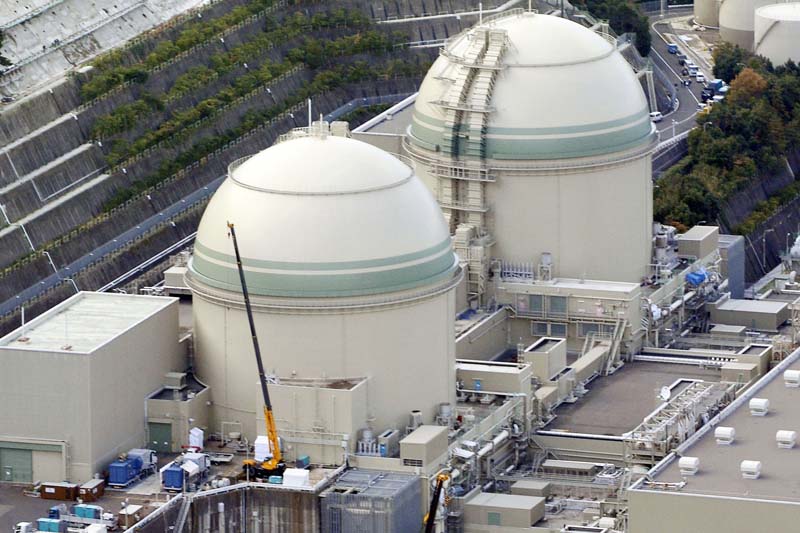Japan court clears way to restarting Kansai Electric nuclear plants
FUKUI, JAPAN: A Japanese court on Thursday cleared the way for Kansai Electric Power Co to restart four nuclear reactors, rejecting legal claims against Japan's second-biggest utility to keep the reactors idled over safety concerns.
The Fukui District Court overturned an injunction that has prevented the restart of two reactors at Kansai's Takahama power station, and rejected a request for an injunction to block the restart of two reactors at its Ohi plant, plaintiffs' lawyers said.
The decision paves the way to restart the units in western Japan nearly five years after the Fukushima crisis. The ruling signals judicial support for Japan's beefed up nuclear safety after Fukushima and may accelerate the country's return to atomic energy.
Local residents in May won an injunction against the No. 3 and No. 4 reactors at Takahama, arguing that restart plans underestimated earthquake risks, failed to meet tougher safety standards and lacked credible evacuation measures.
"Today's two rulings show a recognition that safety has been ensured at Takahama Nuclear Power Station and Ohi Nuclear Power Station," Kansai Electric said in a statement.
The company said it will seek the earliest possible restart of the plants, while "making efforts to autonomously and independently improve safety at our nuclear power stations."
Kansai Electric aims to restart the Takahama No. 3 reactor in late January and the No. 4 unit in late February.
Bringing Kansai's Takahama units back online would follow the restarts of two reactors in southern Japan earlier this year that ended more than a year without nuclear power for Japan's previously atomic-reliant economy.
Another reactor is expected to restart on Shikoku Island early next year but the return to atomic energy has been slower than the government and industry wanted.
Hiroyuki Kawai, an attorney for the plaintiffs, said they plan to appeal against the Takahama decision.
The restart of the two Ohi reactors had been halted pending a similar request for an injunction - which the court rejected on Thursday. The court ruled that an injunction wasn't needed because the reactors are still undergoing checks by the nuclear safety regular and not imminently preparing to start.
After a brief rise, Kansai Electric shares turned lower to close down 2.5 percent, versus a 0.5 percent fall in the broader market. Investors were taking profits on bets that anticipated the favourable ruling for the company, traders said.
The Takahama reactors have met basic safety regulations set by Japan's Nuclear Regulatory Agency and this week got the backing of the pro-nuclear local governor for a restart.
"The court decision to restart the two Takahama reactors is a critical one for Japan's power sector, its nuclear industry, and the Japanese government," said Tom O'Sullivan, an independent energy consultant and former investment banker with many years experience in Japan.
The ruling is a setback for anti-nuclear campaigners, who have filed lawsuits against most of the country's 43 operable reactors.
Opposition to nuclear restarts remains strong among the public after the meltdowns at Tokyo Electric Power's Fukushima Daiichi station north of Tokyo in March 2011 following an earthquake and tsunami.
Kansai Electric serves Japan's second most important economic region, where companies including Panasonic Corp and Sharp Corp are headquartered.
"Restarting its nuclear fleet is critical to restoring the health of Kansai's balance sheet," said O'Sullivan.






